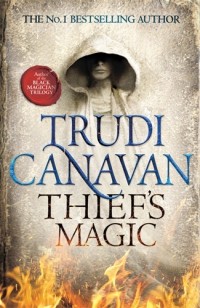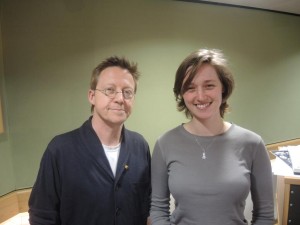When I first sat down to write Devi Morris, I only knew two things about her: 1) she wore powered armor, and 2) she was a total badass. Naturally, the first factor contributed greatly to the second. I dare you to put anything in in a sleek suit of powered armor and not have it become instantly more badass! But equipment alone doesn’t a badass make. If Devi was truly going to be who I wanted her to be, she would have to be just as awesome outside of her armor as she was in it. Her badassery needed to be inherent, a natural element of her being, and before I could write that, I needed to figure out just what a badass was.
What makes someone a badass is one of those things that is instantly recognizable, but hard to actually pin down in objective description. Heroes can be badasses, but not all badasses are heroes (in fact, the badass role is often saved for the villain, whose badassery is used as a threat). And while the classic image of a badass is an aggressive dude, badass is not an inherently masculine or macho descriptor as proven by the enormous number of female badasses in film, comics, television, and literature. It’s also not limited to violence. People who survive impossible situations are also proclaimed badasses even if their feat of badassitude was to simply continue living when most wouldn’t.
With all these differences, the most basic anatomy of a badass can be stripped down to three primary factors: a refusal to give up when the odds are stacked against them, a confident attitude, often aggressive attitude, and some kind of extreme proficiency in a skill. Why these? Well, the attitude part is obvious, but the rest is more interesting. See, humans love to watch people do things very well. Even the simplest, most mundane acts like stacking plastic cups can seem like magic when performed at a world class skill level. We respect talent, even if we can’t actually say how the talent is useful. Likewise, we admire people who stand on their beliefs. One of my favorite lines from Highlander is that uncompromising men are easy to admire. Even when we don’t actually agree, we admire and respect people who stand up for their ambitions/causes/beliefs/dreams and refuse to back down despite overwhelming odds.
Put all these factors together and you can make a badass out of anything. Take the competition cooking show Iron Chef, for example. In the show, chefs from all over the world challenge the reigning Iron Chef to a one hour extreme cooking showdown with a mystery ingredient. Naturally, since this is television, the challenge is designed to seem impossible. How many of us could cook a 5-7 course meal on the fly when every course must incorporate an ingredient we don’t even know until the challenge begins? But the chefs on this show are all kitchen badasses, and they use their years, sometimes decades of experience, creativity, and natural skill to overcome the odds and prove that their cuisine reigns supreme!
So we see that the anatomy of badass can be simple, even formulaic, and when used without thought, this can be a big problem. Think of any mediocre, forgettable action movie and you’ll see a badass that failed not because they didn’t follow the formula, but because they followed it too well. There’s nothing wrong with simplicity, but just as great art can never be achieved painting by numbers, a truly memorable, worthy badass must be far more than the sum of her parts.
Being good at something, an in your face attitude, and refusing to back down are all a good starting point, but a badass who is also a good character has to have style. She can’t just say “I’m the best,” she has to prove it over and over again against increasingly crazy odds. She can’t just take a stand, she has to put it all on the line every single time for a worthy cause she and the reader both believe in. She has to be larger than life and human at the same time, which means her problems have to be writ just as large as everything else. She has to be admirable but still rateable, else she risks being a caricature instead of a character.
This was what I learned from reading and watching my favorite badasses in action, and this was the approach I took with Devi. Now that the series is ending, and I’m looking back at everything I tried to do with it, I think creating a badass to be remembered was the one place where I truly succeeded as well as I’d hoped to. Authors aren’t supposed to have favorite characters, but I can’t help but admit that Devi is and probably will always be right up there at the top. She’s the female hero I always wanted to see in the movies, the badass lady I would have pretended to be when I was a kid, and I already miss her more than I should miss someone who is ultimately a figment of my imagination.
So for everyone who’s been waiting to see how the story ends, I really hope you enjoy HEAVEN’S QUEEN (US | UK | AUS). I put a lot of thought into creating a suitably badass ending, and I don’t think you’ll be disappointed. And for those of you who haven’t met Devi Morris yet (and who’ve been sufficiently entertains by this post long enough to get all the way down here to the end), I invite you to read a little more and check out the first chapter of FORTUNE’S PAWN (US | UK | AUS), the beginning of the Paradox series. Thank you everyone for reading and for making this series a success! I look forward to writing more Paradox novels. I can’t promise more Devi, but really, do you think I can keep her down?
Not a chance.













